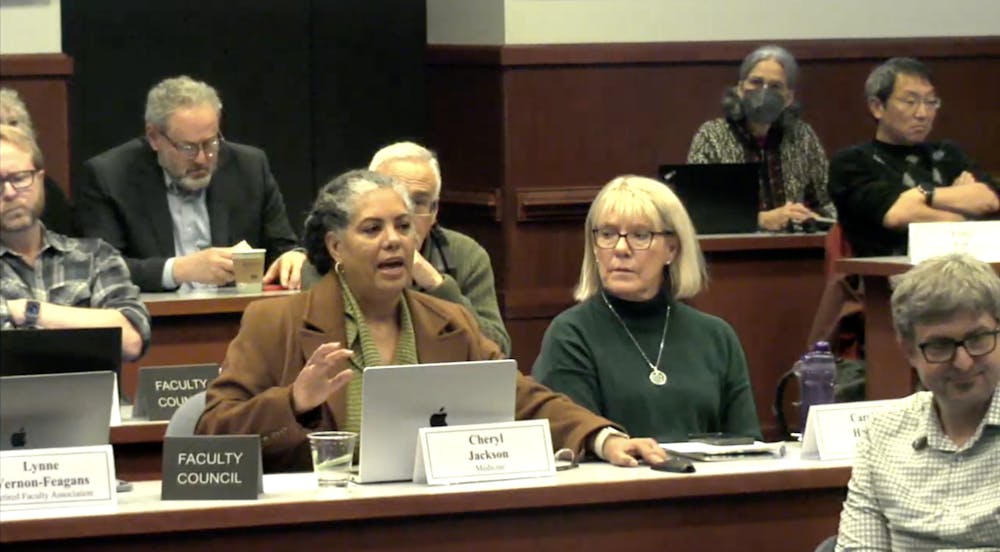The UNC-Chapel Hill Faculty Council and General Faculty held a joint meeting on Friday in Kerr Hall to discuss various updates regarding the UNC System, the University's compliance with affirmative action, the chancellor search committee and faculty governance.
Here’s the rundown:
Foundations of American Democracy proposal
- Faculty Chair Beth Moracco opened the session by discussing the feedback collected from faculty about the Foundations of American Democracy proposal.
- The proposal for the curriculum was updated based on recent UNC System feedback, and the BOG’s Committee on Educational Planning, Policy, and Programs will vote on the updates Wednesday. If that vote passes, the full BOG will vote on the proposed amendment during their meeting in April.
- In the updated version, all references to a new three-credit hour course requirement were removed. There are only two student learning outcomes, which will be evaluated per campus process, as well as the removal of some language of the founding principles.
- Wade Maki, the chair of the Faculty Assembly, said the Faculty Assembly’s goal was to preserve faculty control over the curriculum using pre-existing courses. He said the judgment on institutional fulfillment of SLO criteria will come from institutional approval of courses from the Faculty Council and its committees.
Regulation on faculty workload policy
-
Provost Christopher Clemens said the Office of Faculty Affairs has been collaborating with UNC-Chapel Hill deans and school leaders to implement and adjust the newly formalized faculty workload policy. The faculty workload policy is what the UNC System uses to define the course load faculty members take on.
- “We want to document what’s happening, not prescribe new formulas or recommend new distributions of effort, and so we’ve given broad latitude to each dean," Clemens said. "School leaders are beginning that work and will need the input of faculty as they develop these policies."
- Maki said the new workload policy will include data unique to the UNC System to better ensure accurate and individualized workloads for faculty.
Students for Fair Admissions
- Amy Locklear Hertel, the executive vice provost, reviewed the consultative model and phases of the SFFA process to comply with the Supreme Court's decision to remove affirmative action from admissions processes. Phases one through three looked at the University's application across graduate and professional schools, review of these applications and recruitment and pipeline programming. The University is currently in phase four of the model, which concerns student aid, scholarships and awards it plans to distribute.
- The SFFA and their development colleagues and officers will meet with each school to talk about planned scholarships and awards, Hertel said.
- “We’re following the philosophy of not over-interpreting the decision as we remain true to our values of access and diversity and all of its forms — of equity and inclusion at Carolina,” she said.




